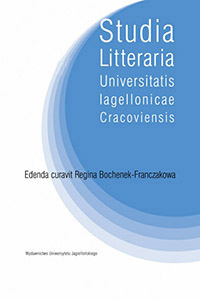Shakespeare Cut and Refashioned: The Ukrainian Translation of Hamlet Made by Hnat Khotkevych (1920s)
Shakespeare Cut and Refashioned: The Ukrainian Translation of Hamlet Made by Hnat Khotkevych (1920s)
Author(s): Daria MoskvitinaSubject(s): Theatre, Dance, Performing Arts, Studies of Literature, Interwar Period (1920 - 1939), Translation Studies, Drama
Published by: Wydawnictwo Uniwersytetu Jagiellońskiego
Keywords: Shakespeare; Hamlet; Hnat Khotkevych; translation; domestication; stage production;
Summary/Abstract: Shakespeare’s Hamlet has always been an attractive challenge for the Ukrainian translators. For now there are more than a dozen variants, and some of them have entered the treasury of the Ukrainian Shakespeareana. It is worth mentioning that the vast majority of these translations were made disregarding the perspective of a production. Only three Ukrainian ‘Hamlets’ were created for the stage, and the almost forgotten translation by Hnat Khotkevych is among them. Although this version was intended for performance, none of its words have ever been pronounced from the stage. Hnat Khotkevych, a renowned Ukrainian musician, writer and theatre practitioner of the 1900s‒1930s completed his translation to bring Shakespeare closer to ordinary people. He was deeply convinced that Shakespeare’s dramatic legacy had to be partly ignored to make it suitable for a stage production in Ukraine in the early 20th century. That democratic intention of the translator resulted in a dramatic simplification of the original text. The technique, employed by Hnat Khotkevych, meant, first of all, cutting the dramatis personae of Fortinbras, Voltimand, Cornelius; the gravediggers never appear in this version either. Besides, the translator, firmly believing that Ukrainian actors of his time were totally incapable of reciting Shakespeare’s poetic verse, transformed the Bard’s iambic pentameter into prose. In his translation, Shakespeare’s tragedy acquired specific linguistic and stylistic features of a typical Ukrainian play of the late 19th–early 20th century, much like Khotkevych’s own dramas.
Journal: Studia Litteraria Universitatis Iagellonicae Cracoviensis
- Issue Year: 13/2018
- Issue No: 3
- Page Range: 155-163
- Page Count: 9
- Language: English

